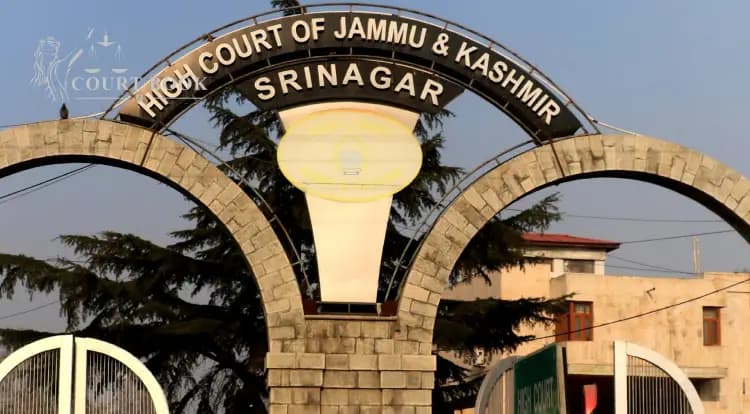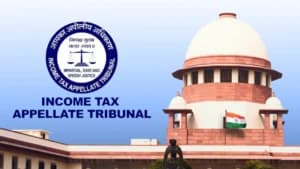The Jammu and Kashmir and Ladakh High Court has clarified that merely assuming a complainant will not support the prosecution does not justify quashing an FIR or complaint. The court underscored that the Sessions Court is well within its rights to discharge an accused under Section 227 of the Code of Criminal Procedure (Cr.P.C.) before the trial begins. This makes it unnecessary to approach the High Court under Section 482 Cr.P.C. for quashing prosecution in such cases.
Justice Vinod Chatterji Koul, while delivering the judgment, referred to the case of State of Maharashtra v. Arun Gulab Gawali (2010) and observed:
“The perception that since the complainant has not supported the complaint, they would not support the prosecution’s case, and hence, there would be no chance of conviction, making the trial a futile exercise, is not a legally sound argument. The quashing of an FIR or complaint on such grounds cannot be justified in law. The Sessions Court has the authority under Section 227 Cr.P.C. to discharge an accused even before the trial begins, and the accused should first seek relief from the Trial Court.”
Read also:Jammu & Kashmir High Court Clarifies MCI Guidelines on Non-Medical Faculty Appointments
Background of the Case
The case originated from an FIR filed by the Crime Branch Kashmir following a complaint by Shareefa Jan. She alleged that the petitioners, Khursheed Ahmad Mahajan, a retired professor, and his wife, Roshan Jahan, fraudulently induced her to invest ₹66.74 lakh in residential and commercial properties in Greater Noida through real estate firms M/s Earth Infrastructure Pvt. Ltd. and Jaydev Infratech Pvt. Ltd. However, despite making the payments, she neither received the promised properties nor any returns on her investment.
Arguments Presented Before the Court
Petitioners’ Stand:
Advocate Shafqat Nazir, representing the petitioners, argued that the FIR was an abuse of legal process. He contended that:
- The complainant had voluntarily entered into agreements with Jaydev Infratech Pvt. Ltd.
- She had even encashed some returns from the investments.
- The Crime Branch ignored crucial facts, such as the earlier closure of a preliminary verification.
- The petitioners themselves were victims of the real estate firm’s insolvency.
Read also:Registering Officers Cannot Question Title or Document Irregularities: J&K HC
Respondents’ Counter-Arguments:
On behalf of the respondents, advocates Nadiya Abdullah, Shahbaz Sikandar, and Omais Kawoos contended that:
- Investigations confirmed that Jaydev Infratech only acknowledged ₹52.81 lakh, leaving ₹13.92 lakh unaccounted for.
- The petitioners acted as intermediaries and misrepresented the financial health of the real estate firms to lure the complainant into investing.
High Court’s Legal Analysis
Justice Koul examined the legal framework surrounding the quashing of FIRs, citing precedents such as R.P. Kapur v. State of Punjab and State of Haryana v. Bhajan Lal. He reiterated that courts must exercise caution while quashing FIRs, limiting such decisions to “rarest of rare” cases where allegations are absurd or legally unsustainable.
Referring to State of Andhra Pradesh v. Golconda Linga Swamy, the court emphasized that the High Court should not assess the reliability of evidence at the FIR stage. Instead, the accused has the legal remedy to approach the Sessions Court under Section 227 Cr.P.C. for discharge if no prima facie case is established.
State’s Duty to Prosecute Remains Intact
The court dismissed the argument that if the complainant later becomes disinterested, the trial loses its purpose. Instead, it stressed:
“An offence is not just a crime against an individual but against society at large. Even if the victim, under undue pressure or influence, retracts their statement, it does not absolve the State from its duty to prosecute the accused and uphold the law.”
Read also:J&K High Court Acquits Mohd. Shafi in 20-Year-Old Murder Case Due to Lack of Evidence
Prejudging the Prosecution’s Case is Not Justified
The court strongly cautioned against prejudging the prosecution process:
“The power to quash criminal proceedings must be exercised sparingly and only in the rarest of rare cases. Courts should not engage in an inquiry regarding the genuineness of the allegations in the FIR unless they are patently absurd or inherently improbable.”
Based on these legal findings, the High Court dismissed the petition, stating that the accused must seek discharge before the Sessions Court under Section 227 Cr.P.C. if they believe no prima facie case is made out.
Case Title: Khursheed Ahmad Mahajan and another Vs Govt Of J&K















